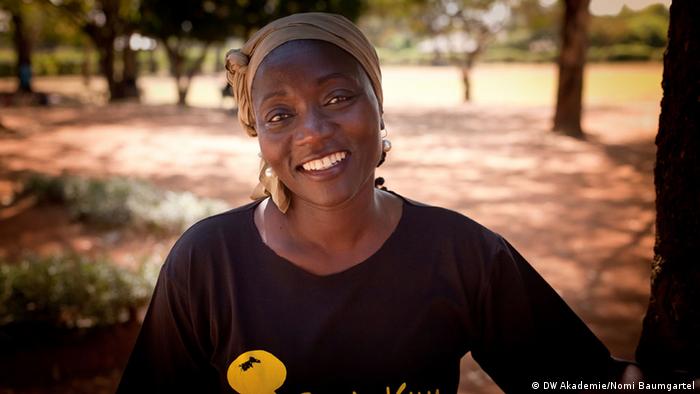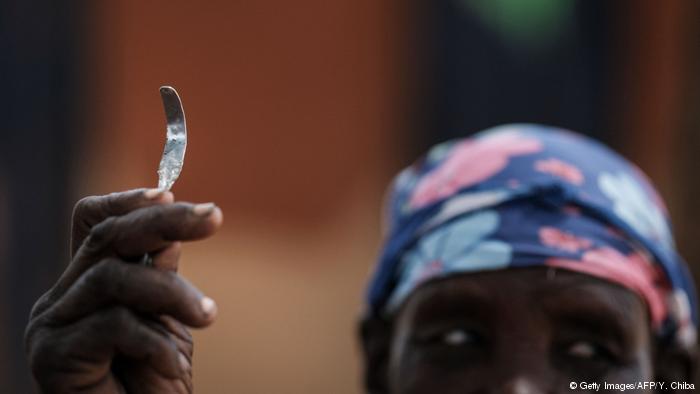Women don’t need to fight with men to get ahead

Auma Obama tells Women Talk Online that women’s emancipation need not be a fight where women are constantly trying to get the better of men.
The Kenyan author, journalist and educationist is widely known for her work on empowering communities in Kenya. Recently, she got a taste of the paparazzi after it was revealed that she was US President Barack Obama’s half-sister.
Women Talk Online: Everybody keeps talking about empowering women in Asia, in Africa. Would you say that women in these countries are “weak”?
Did you see me use that word at all? I don’t use that word in my talks or even while working with disadvantaged communities, in particular with young people. What I say is, it is not about empowering people. If I empower you, I am the active person. I am a linguist as well, so I am very selective about the words I use. I don’t talk about empowering, I talk about supporting.
I talk about creating platforms, where, be they communities or young people can realize their potential. And you can’t talk about empowering because to me it has a sense of arrogance because it sounds like “I come and do it to you.”
What kind of attitude changes do women in the West need towards women in Africa and Asia?
I think they need to start having an honest conversation. Just ask, don’t assume. Don’t judge a book by its cover. I lived in Europe and a good part of my time was spent in Germany where people would say, “Oh you’re African,” and people would react as if they felt sorry for me and I’d come from a place where women were oppressed.
But actually, that’s not the case. First of all, when I made a comparison, just to sort of tease a little bit, I’d say, “I grew up with a mom who worked, my dad worked. Mom would come back at four o’clock. We’d be at school and come back and do whatever was needed.”
In Germany, you come back at 12 because you have to look after the kids. Then you’re “stuck” with the kids.
So my mom was able to realize her potential more than woman who has to decide should I work or stay at home because she can’t do both! Already there, I don’t feel handicapped. In that sense, I feel stronger. As far as my community is concerned, you need to ask me. A conversation needs to happen.
What do women in Asia and Africa need the most right now?
I can’t generalize. Asia is big, Africa is big. You would have to ask me what I was trying to pass on to the girls in our foundation. The main thing we do is, we say, we work with both boys and girls. It’s about equity, not equality. It means creating opportunities which the girls can access just as much as the boys can. And we tell the girls that they must not get left behind, because we as girls and women do it to ourselves. When we are put into a situation where we’re working with men, we step back and let the boys and the men move forward.
So we create a space where there is equity. They don’t have to be like boys, but they have to be able to achieve their goals, even if it means having five kids and staying at home, just as the boy can say, I want to be a house-dad.
How would you describe the woman of today? What kind of a woman is she?
I could be mean and say, she’s a little bit of a threat to men and that’s because she’s moved so fast while changing, much faster than the men. That’s where we’re actually not so fair to men. Because as mothers we are still socializing them to be strong men in charge of the family, taking everything in their stride, whereas we’re teaching our girls to take care of themselves.
So when the man gets to the point where he can do all this, the girl says, “Hey I can do it myself!” So I think there is a bit of confusion going there. The men are made insecure by the fact that women are doing the same for themselves, globally.
But for the woman, it’s very advantageous. And when it comes down to relationships, it depends on the man and woman at home to decide how they relate to each other. But I always say, don’t try to promote the girl more than the man as if it were a fight or a competition because at the end of the day, we all go home to our men, to our brothers, our uncles and we as a family decide what happens.
Interview: Manasi Gopalakrishnan
Editor: Grahame Lucas
You can follow Manasi in Twitter @marsie59.






